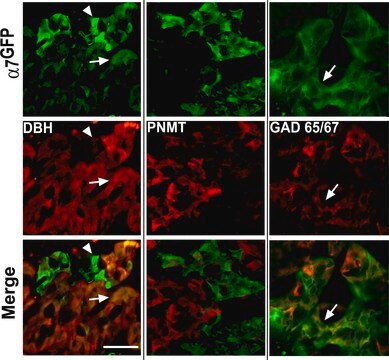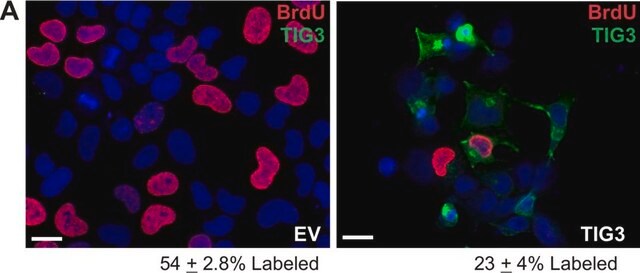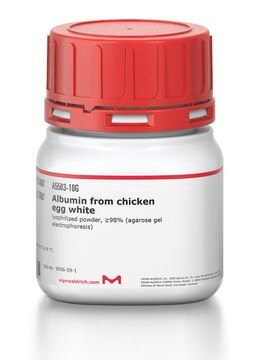B6804
Monoclonal Anti-Bacterial Alkaline Phosphatase (BAP, PhoA) antibody produced in mouse
clone BAP-77, ascites fluid
Synonym(s):
Monoclonal Anti-Phosphatase, Alkaline, bacterial
About This Item
Recommended Products
biological source
mouse
Quality Level
conjugate
alkaline phosphatase conjugate
antibody form
ascites fluid
antibody product type
primary antibodies
clone
BAP-77, monoclonal
mol wt
antigen ~50 kDa
species reactivity
bacteria
technique(s)
indirect ELISA: suitable
western blot: 1:20,000 using purified Escherichia coli BAP
isotype
IgG1
shipped in
dry ice
storage temp.
−20°C
target post-translational modification
unmodified
General description
Immunogen
Application
Biochem/physiol Actions
Disclaimer
Not finding the right product?
Try our Product Selector Tool.
Storage Class Code
12 - Non Combustible Liquids
WGK
WGK 1
Flash Point(F)
Not applicable
Flash Point(C)
Not applicable
Certificates of Analysis (COA)
Search for Certificates of Analysis (COA) by entering the products Lot/Batch Number. Lot and Batch Numbers can be found on a product’s label following the words ‘Lot’ or ‘Batch’.
Already Own This Product?
Find documentation for the products that you have recently purchased in the Document Library.
Our team of scientists has experience in all areas of research including Life Science, Material Science, Chemical Synthesis, Chromatography, Analytical and many others.
Contact Technical Service





